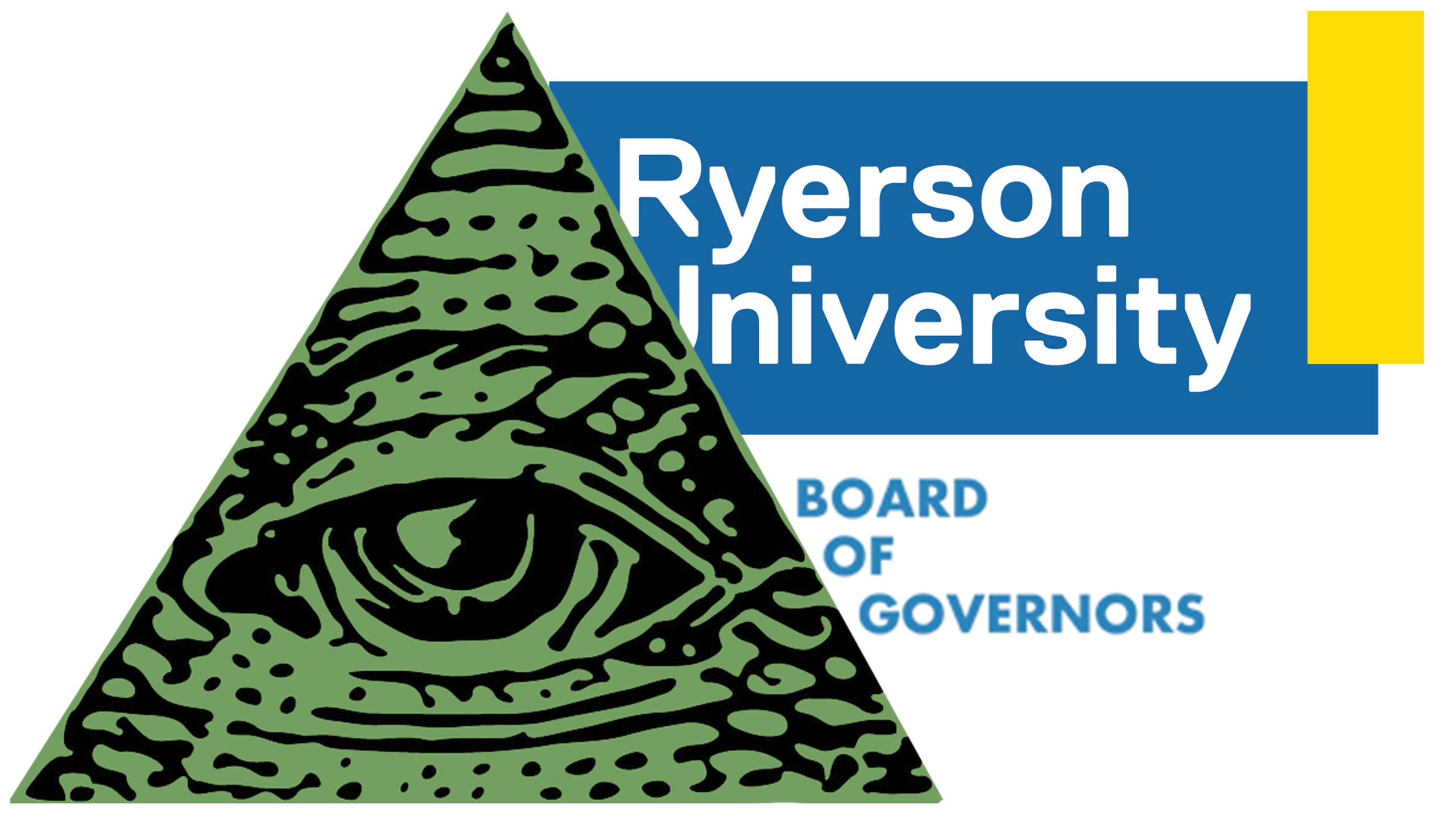By Justin Chandler & Jacob Dubé
On the heels of the Ryerson Students’ Union (RSU) elections last month, many current and incoming executives are now running for a position on Ryerson’s Board of Governors (BoG).
While the RSU manages student-led initiatives and programs, the BoG and its sister organization, the Senate, govern Ryerson University as a whole. The Senate governs academic matters and the BoG is responsible for Ryerson’s property, revenues and how it conducts its business and affairs. Positions are voluntary and unpaid.
Among the candidates for student rep this term are current RSU vice-president education Daniel Lis, former RSU president Obaid Ullah and incoming RSU executives Salman Faruqi and Savreen Gosal.
Voting for new staff and student members ran March 5 to 8.
Last year, former RSU vice-president operations Neal Muthreja and current Ted Rogers Students’ Society president Nav Marwah sat on the board alongside former RSU vice-president education Victoria Morton.
“When you work with the university, you tend to deal with the things that are out of your control”
Morton was on the BoG for two years. She said BoG members have access to information that can help the RSU, such as updates on the university’s actions, priorities and budget.
That sort of information is not confidential, but being on the board made it more accessible and taught Morton more about it, she said.
Ullah—who calls his candidacy for the BoG his “exit point” from Ryerson politics—said that while campaigning, not a single person he asked was aware of what the BoG is or what it does. “A lot of that has to do with the fact that students don’t look at reports or updates,” he said. “There’s no sense of outreach from BoG representatives in the past.”
Lis said working at the RSU allowed him to learn about the organization and structure of the university, but the limits of what could be done from the union became clearer—the RSU can’t take many actions outside of the Student Campus Centre.
“When you work with the university, you tend to deal with the things that are out of your control,” Lis said. “You see the changes that you’d like to be made that in the RSU you don’t have influence over.”
“The three student reps might be the only students [powerful board members] see on a regular basis.”
Morton said a big BoG misconception is that it’s project-based, like the RSU. But she calls the student rep position a “presence-based role.” She added the best way to be a good board member is to show up having read the materials under review and ask questions students would want to know the answers to.
Lis said that as a student on the board, even if he can’t put his platform points into action, the contact with the other members of the board would help advocate for changes in less formal ways. “In the end, the university is a big structure that changes slowly,” he said. “As students, we only hold three positions on a board of 15, so advocating is sometimes all we can do.”
Morton said that despite some board members being powerful CEOs—like chair Janice Fukakusa, who’s RBC’s Chief Administrative Officer and Chief Financial Officer—every member’s voice is heard and considered.
Rubbing shoulders with successful people is a reason students may try to get on the board, Morton said, but students have more responsibility than that.
“The three student reps might be the only students [powerful board members] see on a regular basis.” Reps need to be able to represent students in a good light, she said.













Leave a Reply